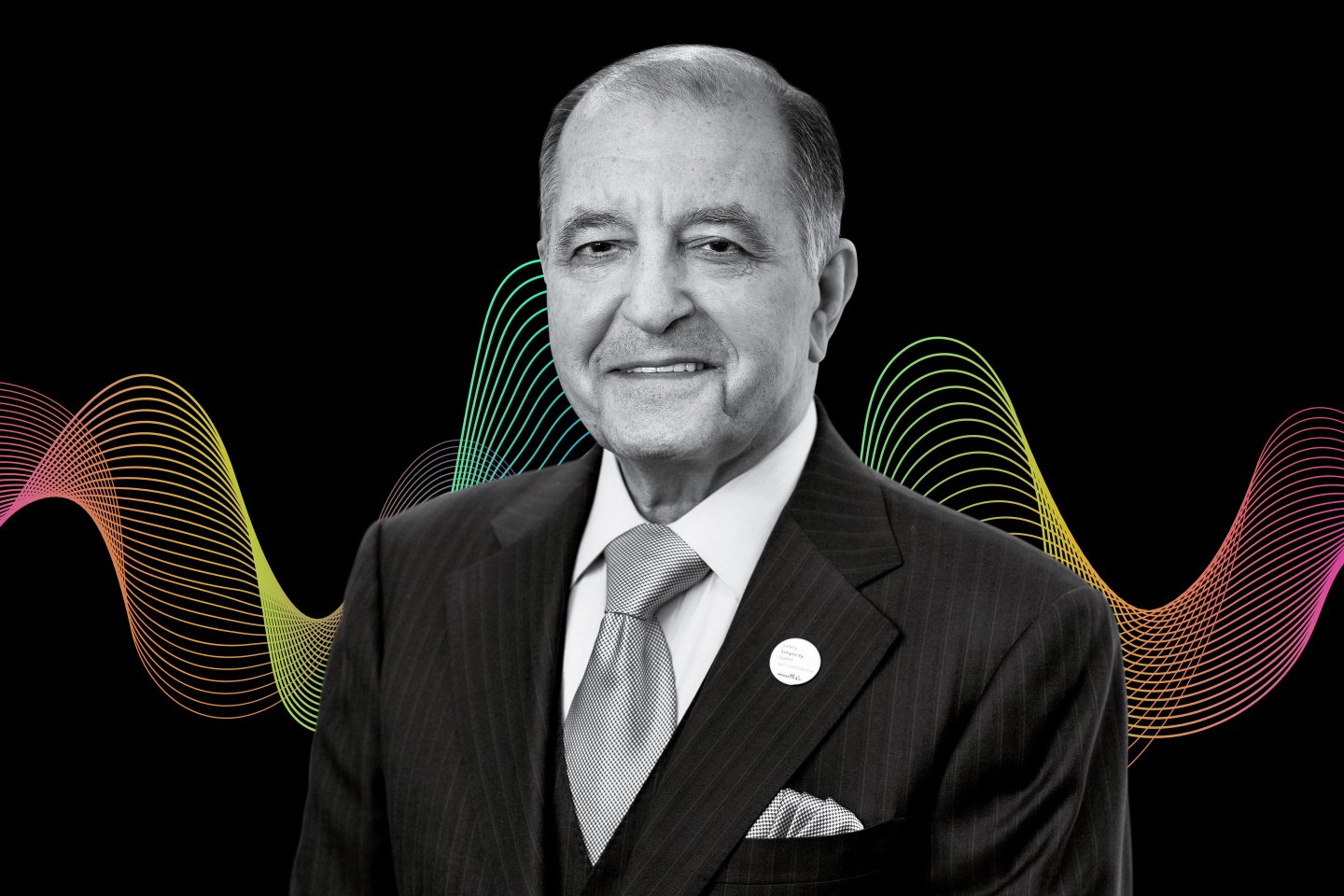Good morning.
Is hydrogen the answer to the world’s energy problems? Our guest on Leadership Next this week answers that with a definite yes. His name is Seifi Ghasemi, CEO of Air Products, the largest producer and transporter of hydrogen in the world.
“Hydrogen has always been and will always be our only source of energy. There is no other source of energy. And if we want to use energy that doesn’t pollute, we need to come up with hydrogen that is low carbon intensity.”
Which brings me to the colors. A quick primer: Gray hydrogen is made from natural gas, with a byproduct of carbon dioxide that ends up in the atmosphere. Blue hydrogen captures the CO2 and stores it in the earth. Green hydrogen is made using renewable energy—solar, wind, hydro, nuclear—with no CO2 byproduct. A hundred years from now, Ghasemi believes, all hydrogen will be green. The only question is how you get there.
“This is not like going from wood to coal or coal to oil because it’s cheaper…You have to have a mechanism which is going to justify the additional cost. We are not going to go to a low-carbon world if you do not have the support of governments to encourage using it.”
That leads to the question that Michal Lev-Ram and I often ask on our Leadership Next podcast: What is the responsibility of the corporation to push climate solutions in the absence of clear government incentives?
“If hydrogen is the only solution and we are the largest hydrogen company, it is our responsibility to do that. I mean, who else is going to do that?”
But he acknowledges it is hard, particularly when the market is penalizing you for making large investments in projects with unclear economics.
“It’s not easy to convince your board that I’m going to invest $8.5 billion dollars in Saudi Arabia, and I don’t have any customers yet.”
Ghasemi was born in Iran, emigrated to the U.S., and turns 80 years old in September. He says he hasn’t taken a vacation since 2004, and has no plans to retire. It sounded to us like he wants to see the energy transition through to completion.
You can listen to the full podcast on Apple and Spotify, and I would highly recommend it. And by the way, if your company is looking to learn from others on the sustainability journey, you should consider joining the Fortune Impact Initiative, held in conjunction with our partners at EVERFI. You can get more information here.
Other news below.

Alan Murray
@alansmurray
alan.murray@fortune.com
TOP NEWS
The EU investigates Apple
The European Commission wants Apple to explain its decision to revoke the developer account of Epic Games. Epic was set to be one of the first third-party app stores to launch on the iPhone, thanks to new antitrust rules in Europe. Apple’s move halts those plans. Epic has feuded with Apple for years over the latter’s rules and fees for app developers. Fortune
A “third place” in the office
If managers want employees back in the office, they need to give people more room to socialize and come together—even if it means sacrificing a little productivity to do so, argues Tim Rowe, CEO of co-working space provider CIC. Rowe suggests building that “third place,” referring to public spaces outside of the home and workplace, in the office itself. “There’s this opportunity for something that’s a little more connected and a little more inspiring,” he says. Fortune
Boeing ties pay to safety
Safety will now play a larger role in Boeing’s compensation plans as the airline manufacturer continues to grapple with the Alaska Airlines door plug incident. Employees in Boeing’s commercial unit will now have 60% of their annual bonus tied to safety metrics; previously, it was just 25%, with the remainder tied to financial performance. The Wall Street Journal
AROUND THE WATERCOOLER
Amazon will no longer underwrite loans for sellers in its $140 billion Marketplace business by Jason Del Rey
Workers distracted by office chitchat are pretending to be in Zoom meetings to signal to colleagues ‘I don’t want to talk to you’ by Rachyl Jones
Broke boomers are moving in with their millennial kids, who are seething: ‘Where were they when I needed help?’ by Jasmine Li
Portugal just killed the most popular ‘golden visa’ in Europe. Here’s where wealthy Americans are flocking instead by Alicia Adamczyk
Australia is showing us what happens when Tesla-beating BYD faces no tariffs and is free to grow by Steve Mollman
The remote-work revolution means only managers can afford to live in pricey cities by Irina Ivanova and Alena Botros
This edition of CEO Daily was curated by Nicholas Gordon.
This is the web version of CEO Daily, a newsletter of must-read insights from Fortune CEO Alan Murray. Sign up to get it delivered free to your inbox.














